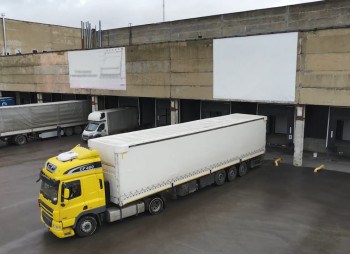Demining is a meticulous and hazardous task requiring qualified personnel and specialized equipment. The process is slow, and the risk of casualties remains high.
The initiative opens up opportunities for innovation and collaboration. Advancements in technologies such as drone-based detection systems promise to expedite the clearance, potentially saving lives and returning land to productive use sooner than previously thought possible.
The initiative is focused on the northwest and south of Ukraine, promising to restore safety and productivity in these crucial agricultural zones.
The publication said that the Minderoo Foundation's donation was not just a financial gesture but a lifeline for Ukrainian farmers caught in the crossfire of conflict.
Landmines and remnants of warfare pose a significant threat to the lives and health of people, rendering vast swathes of fertile land unusable. Efforts in demining supported by the Forrests are expected to eliminate these threats and enable internally displaced persons to return to their hometowns and agricultural sectors to flourish once again.
This contribution addresses an urgent issue because agriculture is key to Ukraine's economy and food security.
On February 18, Ukrainian President Volodymyr Zelensky met with Andrew Forrest, an Australian businessman and founder of Fortescue Metals Group, during his visit to Munich to discuss Ukraine's reconstruction.
Forrest's wealth, according to Forbes, amounts to $19.8 billion (95th place in the global billionaire rankings). Among Australian billionaires, he is second only to Gina Rinehart, the CEO of the major mining company Hancock Prospecting.
In 2003, Forrest founded Fortescue Metals Group, which is engaged in iron ore mining and producing clean energy.
Forrest heads the philanthropic Minderoo Foundation, with donations totaling $9.6 billion.
Due to Russian aggression against Ukraine and active combat, the war-torn country is contaminated with explosive hazards. Some analysts consider Ukraine the most mine-contaminated country in the world.
In September, Prime Minister Denys Shmyhal stated that about 174,000 square kilometers of land in Ukraine remains potentially mine-contaminated. He emphasized that this vast territory could take decades to clear. However, Ukraine's goal is to accomplish this in the coming years.
Currently, Ukraine has 3,500 demining specialists, but this is insufficient. There is a particularly acute shortage of specialized equipment for clearing land from explosive devices, especially mines buried deep under a thick layer of soil.
The State Employment Service (SES) has made it possible to train as a "deminer" using a voucher.
15 partner countries have signed a Protocol of Intent to create a Demining Coalition. Seven more countries are expected to join.
Ukrainian developers from the Brave1 cluster have created innovative artificial intelligence technology for demining.
In April-May this year, the joint mine clearance group consisting of Bulgaria, Romania, and Turkey will begin work on clearing the Black Sea of mines.






